Peter Dutton targets Anthony Albanese’s Indigenous to voice parliament, but how strong is support within his own party?

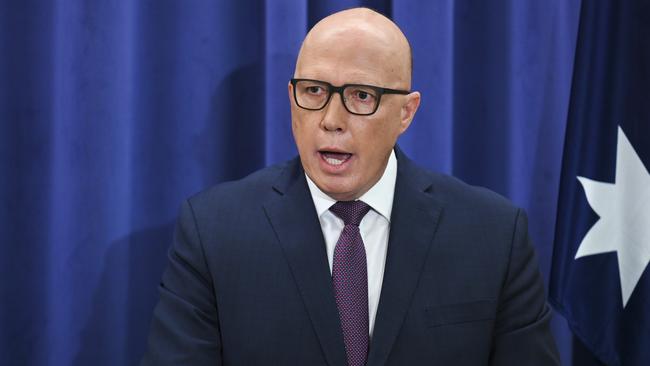
But just how strongly held those convictions are among his MPs now appears to be questionable.
Less than a third of Dutton’s shadow cabinet have confirmed to The Australian that they would actively join the public campaign with the Liberal leader to oppose it, despite being bound by the party room decision.
Conspicuously, the deputy leader Susan Ley isn’t one of them.
If the exercise is about rekindling the party’s dwindling support base, it becomes harder for Dutton to prosecute the case if most of his MPs are going to sit on the fence, struck silent through either fear or faint-heartedness, or a lack of belief in the cause.
This becomes a critical factor in the battle of political ownership that is now underway over the Indigenous voice to parliament and executive government.
Anthony Albanese is vigorously pursuing the argument that the referendum belongs to Australians rather than politicians.
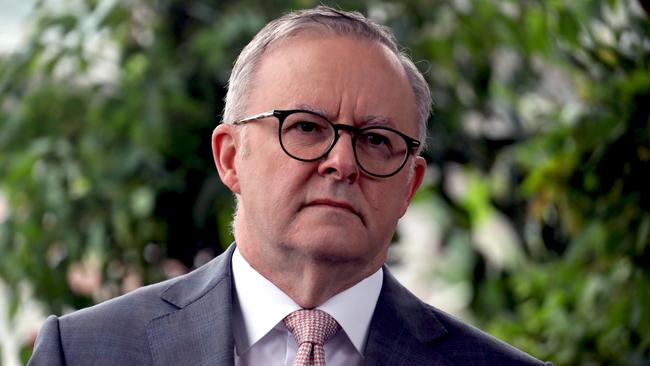
Peter Dutton is determined to prevent Albanese being let off the hook. This is the tactical game now at the heart of the debate. It is high stakes politics. And there are only big winners or big losers. His premise is that Albanese can’t escape responsibility if it fails.
It is understandable that some Liberal MPs would be nervous about sticking their heads up now the Liberal Party position is established, considering the personal attacks that have been launched on Dutton since.
Among Coalition voters, 55 per cent are against a voice to parliament enshrined in the constitution – 40 per cent of them are a hard no with 15 per cent partly against.
While this underpins the reason Dutton would have felt he had little choice in the end to land on the decision he did, the polling isn’t as clear cut when examined more closely and could be interpreted in different ways.
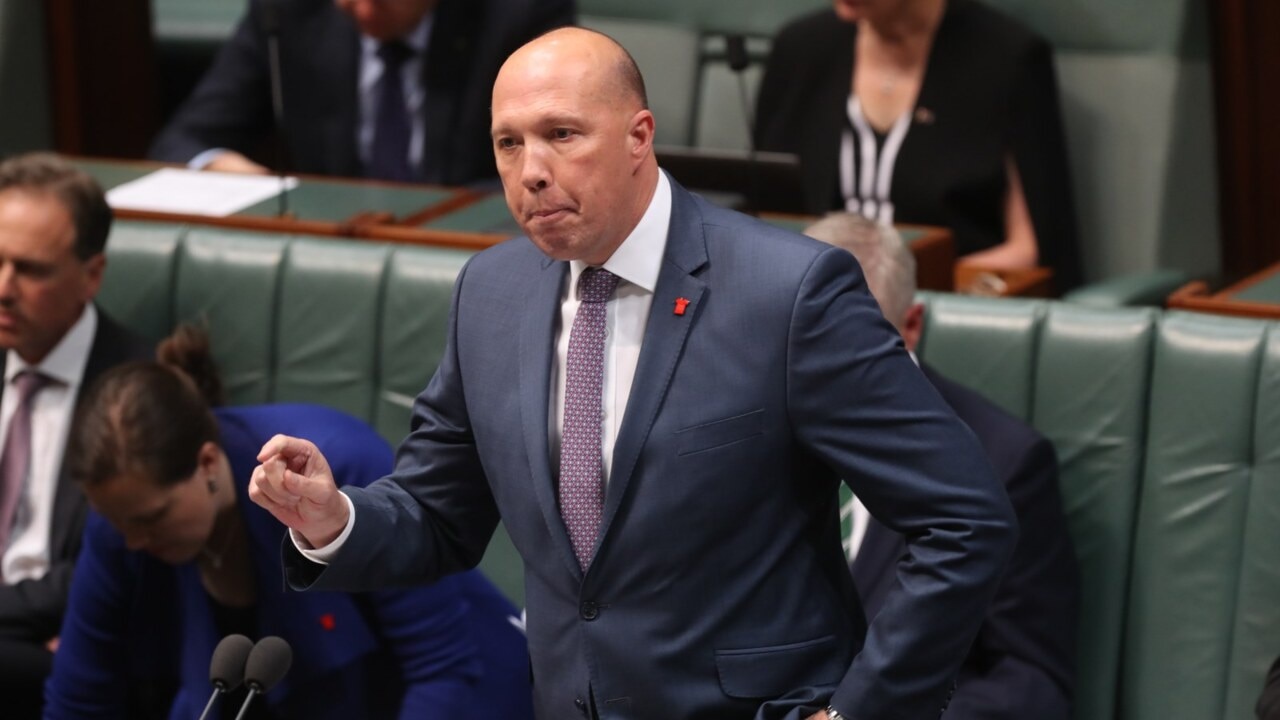
The last of three Newspolls conducted since February on this question reveals that the hard no vote is now higher than the hard yes vote – 27 per cent compared to 25 per cent. This represents a rise among those strongly against of three points since the beginning of the year and a three point fall among those strongly in favour.
But when split along party political lines on the broader question of approval, among both Coalition and Labor voters, both sides saw a rise in the total combined number of those both strongly and partly in favour.
At the same time, the total of Coalition voters against – both strongly and partly against – has fallen from 59 per cent in February to 55 per cent at the end of March.
It is among the minor party voters where a significant shifting of the dial seems to have occurred.
The total vote against within this group, which makes up about 18 per cent of all voters, is a staggering 64 per cent.
Significantly less than half of this grouping comes from Pauline Hanson’s One Nation voters, the rest residing in other minor parties – other than Greens – and independents, including the teals.
Among Greens voters, support has eased off marginally from 81 per cent to 78 per cent while those against has risen over time from 9 per cent to 14 per cent.
But among those voters identifying as supporting other minor parties there has been a significant 11 percentage point rise in those against the voice since February – and most of it in the past four weeks following the release of the final referendum wording and voice model.
The reason for this can only be guessed at. But it is reasonable to assume it is heavily weighted around the right wing fringes.
This is where Dutton presumably sees scope for the Coalition to retake some broader electoral territory on the right, driven purely on this issue. But for this to work, he must continue to make it a partisan political issue, with Albanese at the centre. And he will need more than a handful of his colleagues out and about making the case with him.


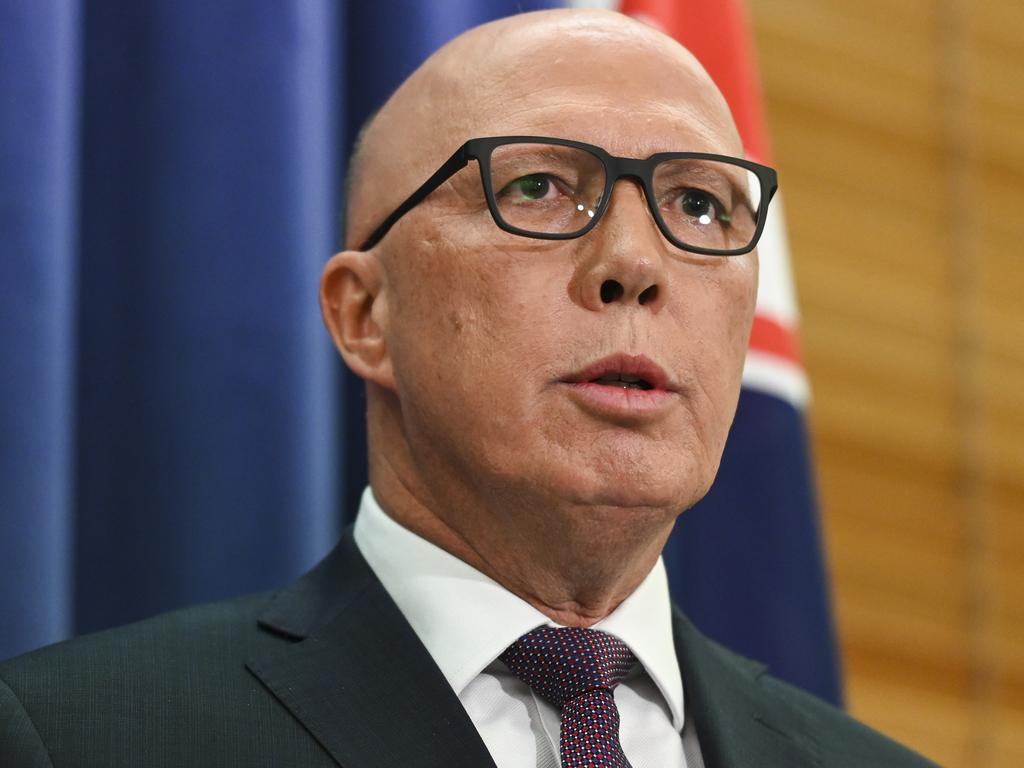
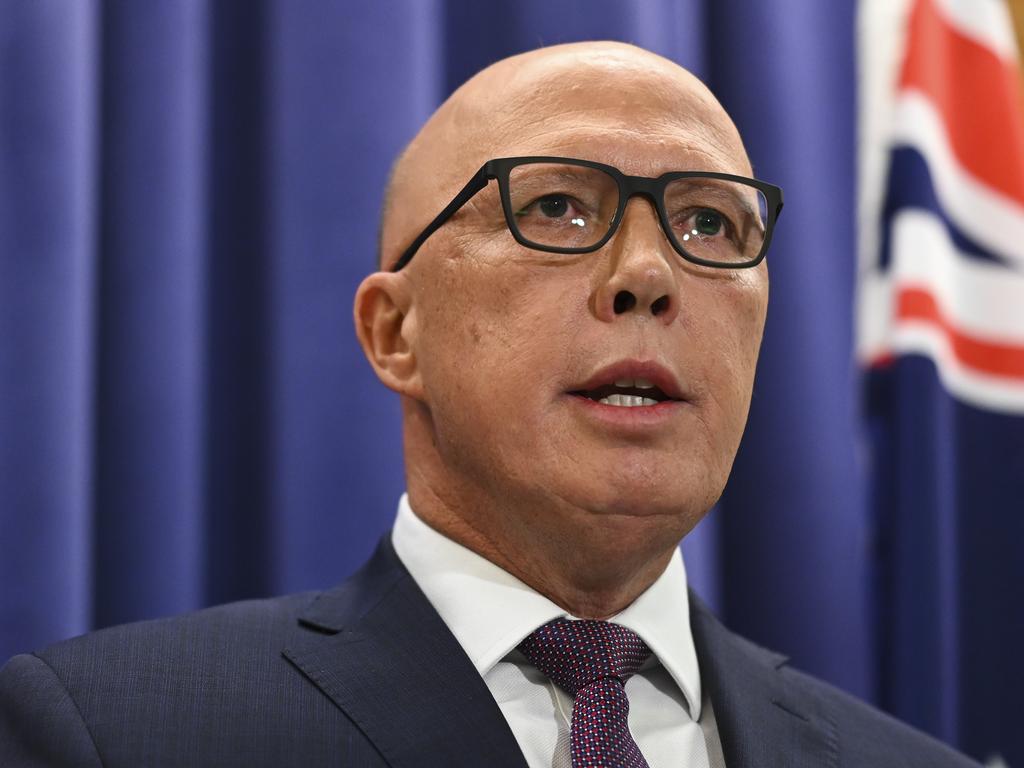



Peter Dutton last week engineered almost unanimous support within the Liberal party room for the no case against the proposed Indigenous voice to parliament referendum.